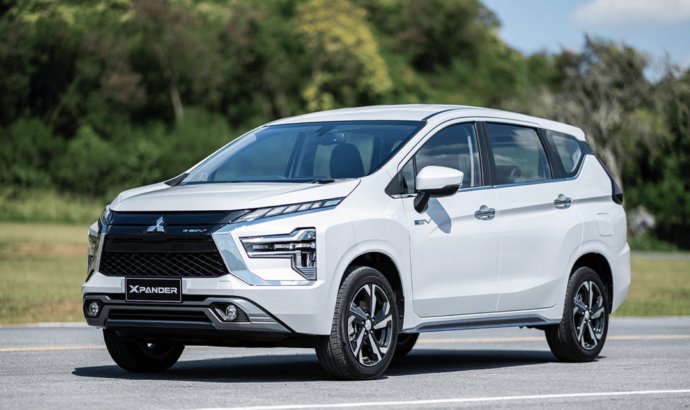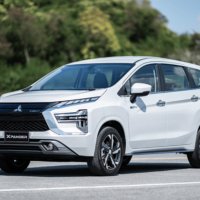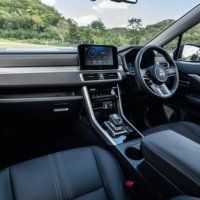The Mitsubishi Xpander HEV and Xpander Cross HEV have debuted in Thailand, bringing electricity to the seven-seater MPVs. Mitsubishi has equipped these two vehicles with full-hybrid technology developed in-house.
The MPVs include a hybrid electric vehicle (HEV) system based on the brand’s plug-in hybrid (PHEV) powertrain, called e:Motion. The newly designed HEV system supports EV driving, hybrid driving, and regenerative braking.
The combustion engine is a new, larger 1.6-liter inline four-cylinder MIVEC petrol Atkinson Cycle engine. This improves the engine’s stand-alone fuel economy by about 10% compared to the gasoline 1.5L engine CVT model. The MPV is around 34% more fuel-efficient in cities and 15% more economical on highways. It is then paired with a 1.1 kWh battery, which powers the single electric motor. The total system output is listed as 114 horsepower and 255 Nm of torque.
To maximize the powertrain, the system has numerous drive modes: normal, wet, gravel, tarmac, mud, EV priority, and EV charge. Normal mode is for everyday driving, while Tarmac mode provides better handling on winding roads; Gravel on unpaved roads; Mud on muddy, rough roads; and Wet reduces tire slippage in heavy rains. The HEVs also get Mitsubishi’s All Wheel Control technology, which includes Active Yaw Control, Acceleration Control, and Steering Control.
There are some subtle alterations on the HEV models, such as “HEV” badges on the front grille and tailgate, “Hybrid EV” badging on the doors, and blue highlights on select portions of the exterior.
The interiors of the Xpander HEV and Xpander Cross HEV are upgraded, including a new eight-inch color LCD instrument panel and an electronic transmission shifter.
The Xpander HEV and Xpander Cross HEV chassis have a similar configuration, with front MacPherson struts and a rear torsion beam. With the addition of a battery pack beneath the floor and an electric motor, the manufacturer increased body stiffness and tuned the suspension to manage the additional weight. The suspension has been improved to increase steering stability and ride comfort.
The Mitsubishi Xpander HEV and Xpander Cross HEV are currently on sale in Thailand, and they are assembled locally. The Xpander HEV starts at 912,000 baht in Thailand, while the Xpander Cross HEV costs 946,000 baht.
Source: Mitsubishi Motors




